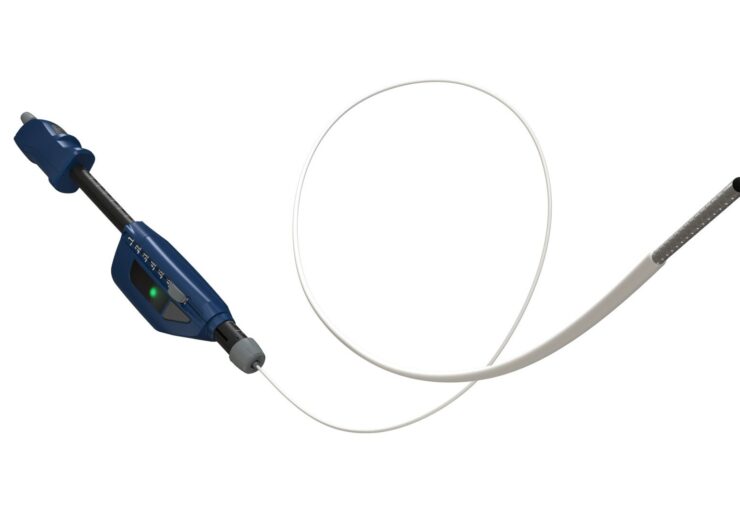Precision GI is an automated device, designed to obtain biopsy samples with superior quality and quantity for definitive diagnosis of pancreatic cancer and other serious GI cancers, with more speed and less trauma compared to current products

Limaca’s Precision GI Endoscopic Biopsy Device. (Credit: PRNewswire/Limaca Medical)
Israeli medical device company Limaca Medical received the US Food and Drug Administration (FDA) 510(k) approval for its Precision GI Endoscopic Ultrasound (EUS) Biopsy Device.
The regulatory approval follows a Breakthrough Device Designation from the FDA.
Precision GI is designed to obtain biopsies for definitive diagnosis of pancreatic cancer and other serious GI cancers, with more speed and less trauma compared to current products.
It is an automated device that enables effective diagnosis of GI cancers by yielding significantly superior quality and quantity of diagnostically relevant biopsy tissue, said the company.
Limaca vice chair Carl Rickenbaugh said: “We are pleased with FDA’s clearance of Precision GI, following our FDA Breakthrough Device Designation.
“We are dedicated to our mission to provide a far better endoscopic biopsy experience for the endoscopist and patient, with the goal of achieving faster, more efficient biopsy yield with highly consistent results. We look forward to soon bringing Precision GI to patients in the US.”
Limaca CEO Assaf Klein said: “FDA clearance allows us to bring Precision GI to market to fulfil our mission to always achieve precise, efficient, and definitive biopsy samples.”
The existing endoscopic ultrasound fine needle biopsy (EUS-FNB) devices require manual hand operation and have limitations in obtaining quality tissue with adequate quantity.
Precision GI features a unique motorised, automated rotational cutting needle which enables safe, and high-quality tissue acquisition.
Limaca said that its Precision GI system facilitates the collection of contiguous intact core tissue samples, which is adequate for definitive diagnoses of pancreatic lesions.
The clean, non-contaminated tissue samples will provide a high percentage of tumour content, with less blood and extraneous fluids, said the medical device company.
